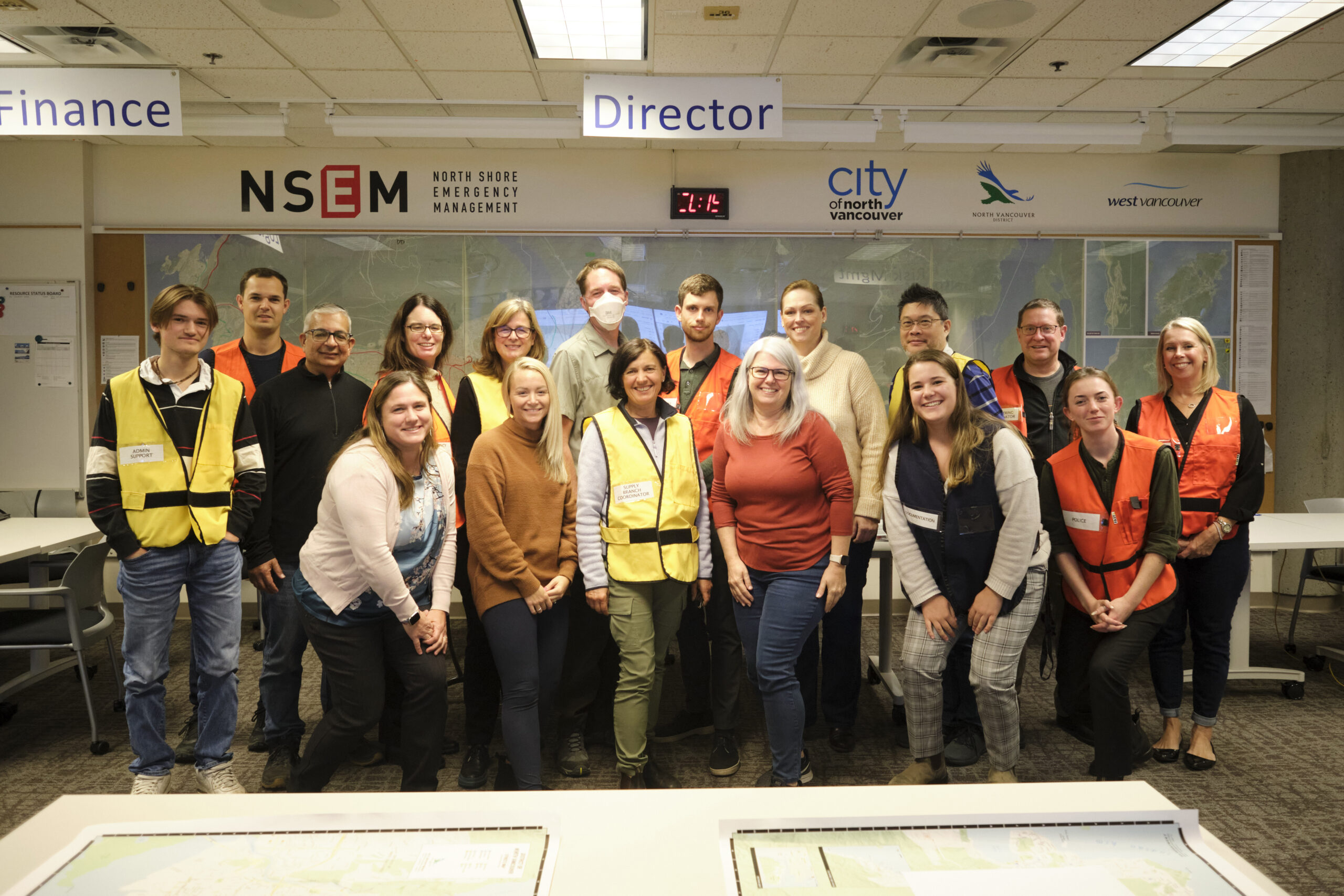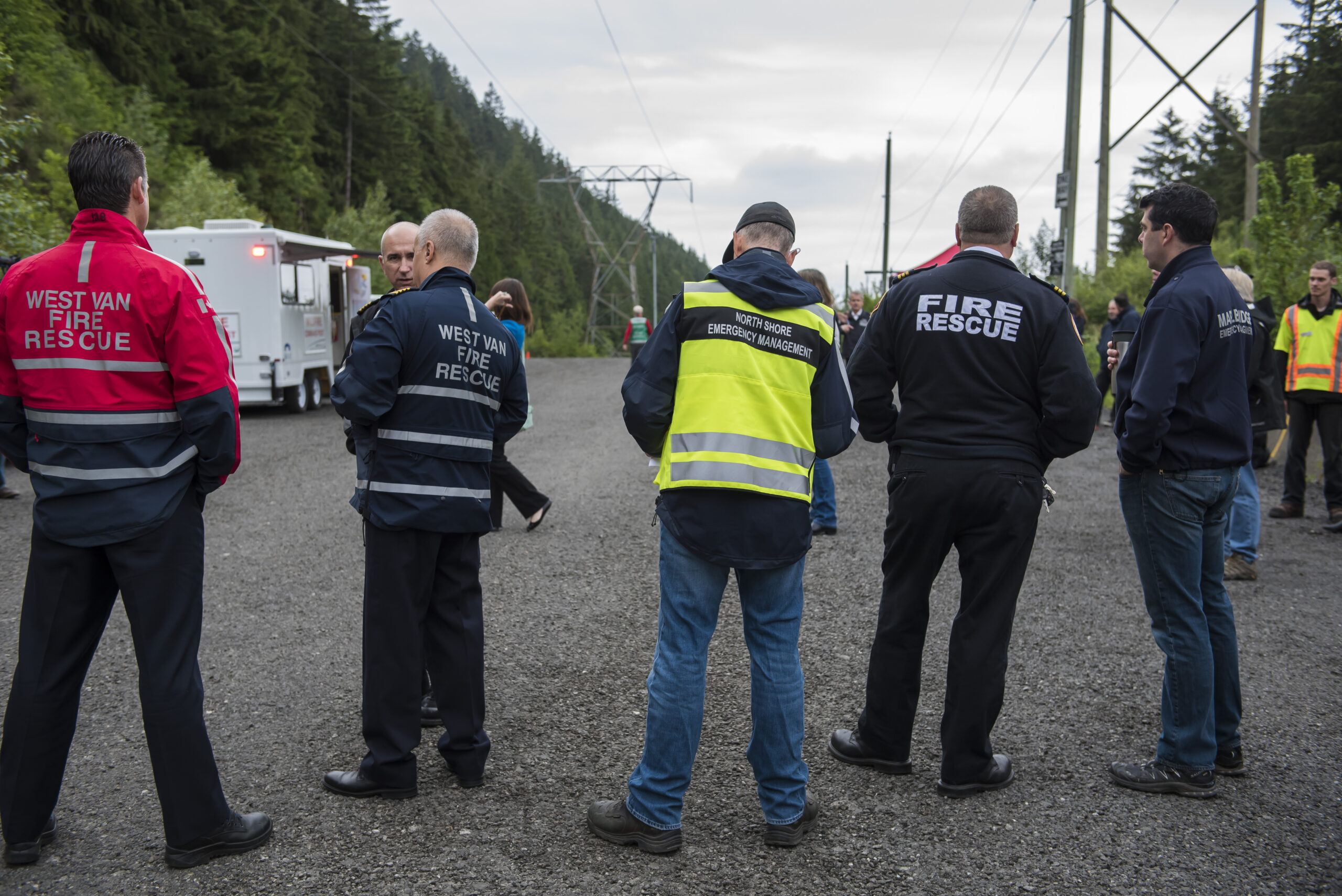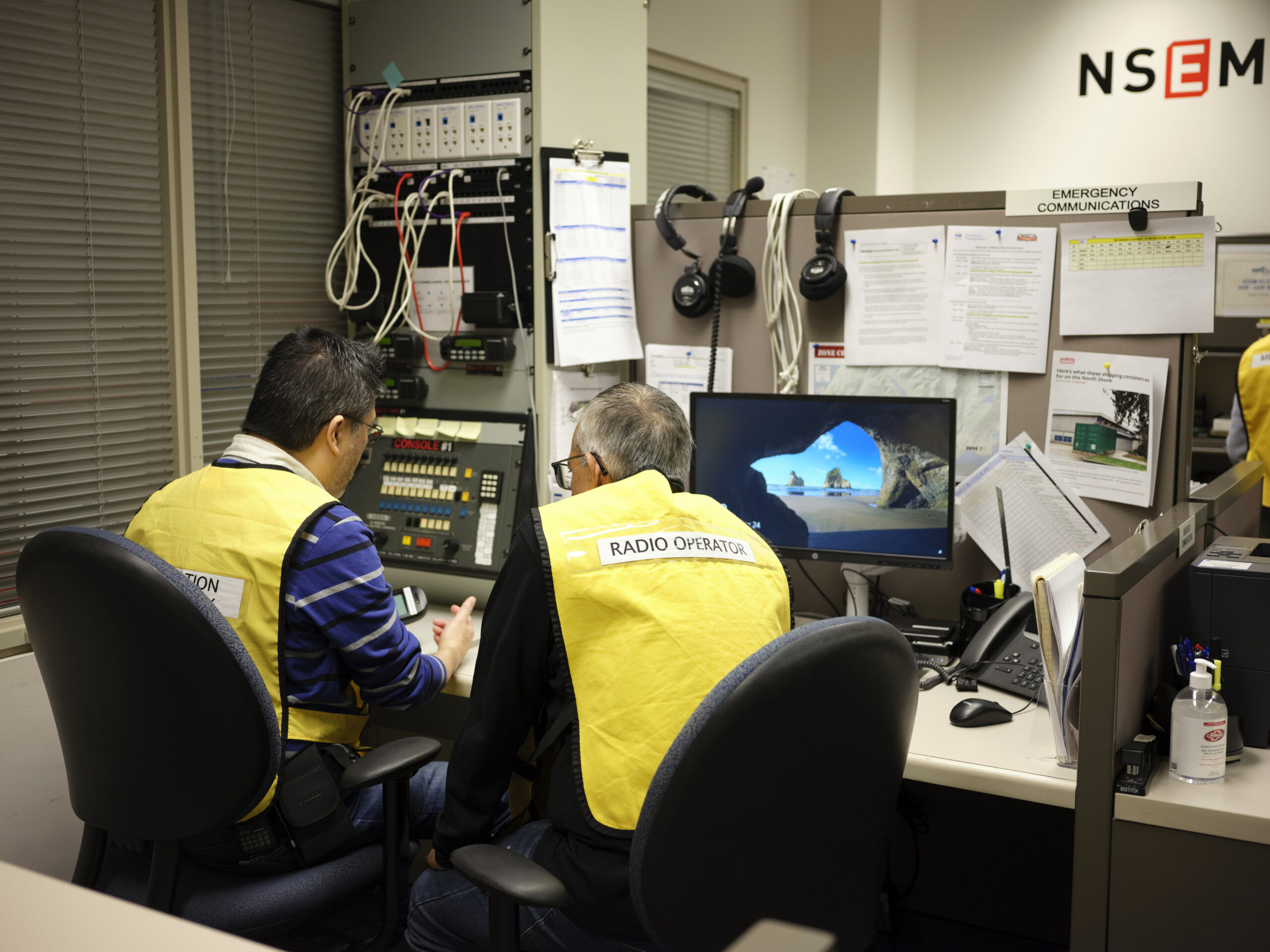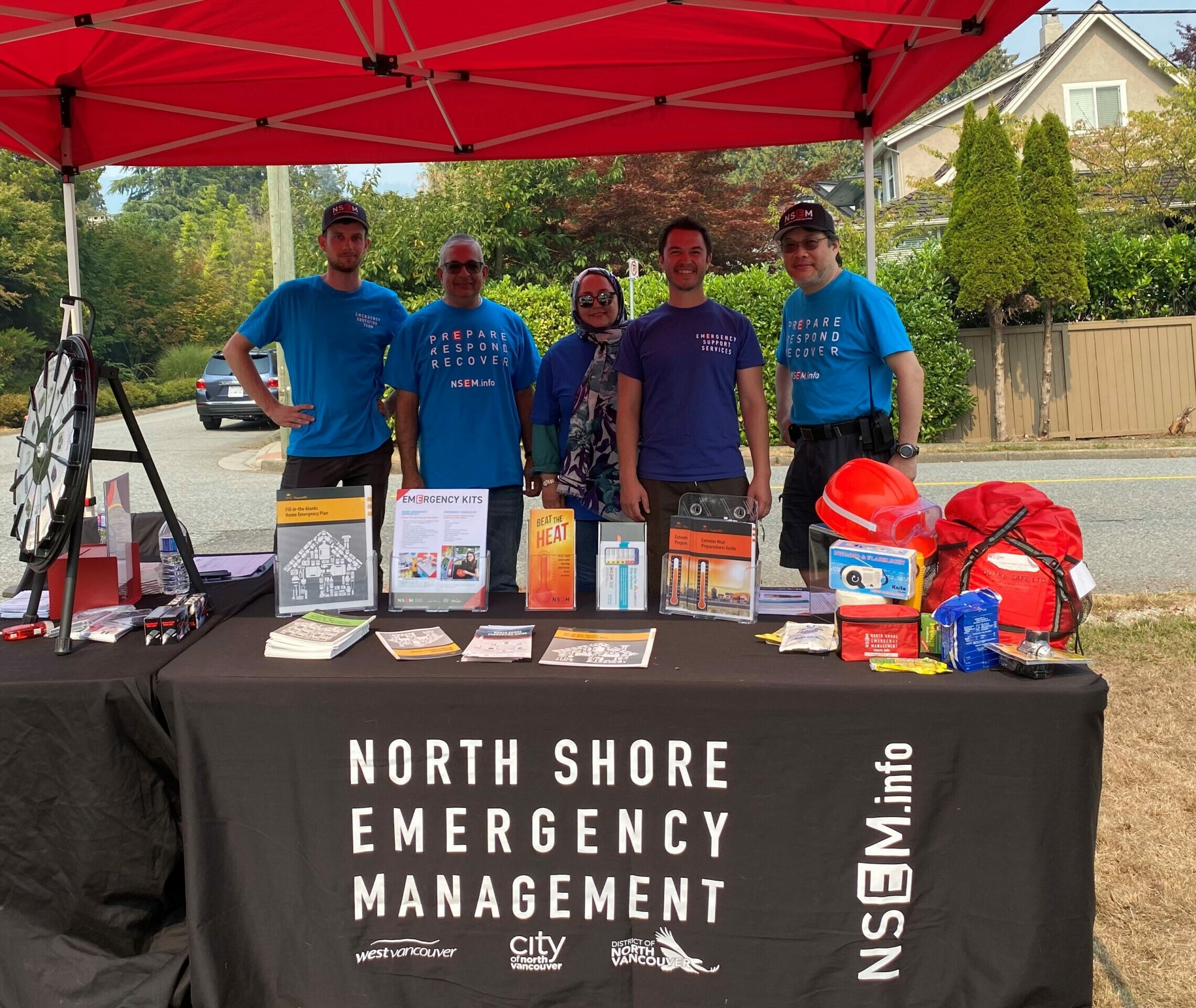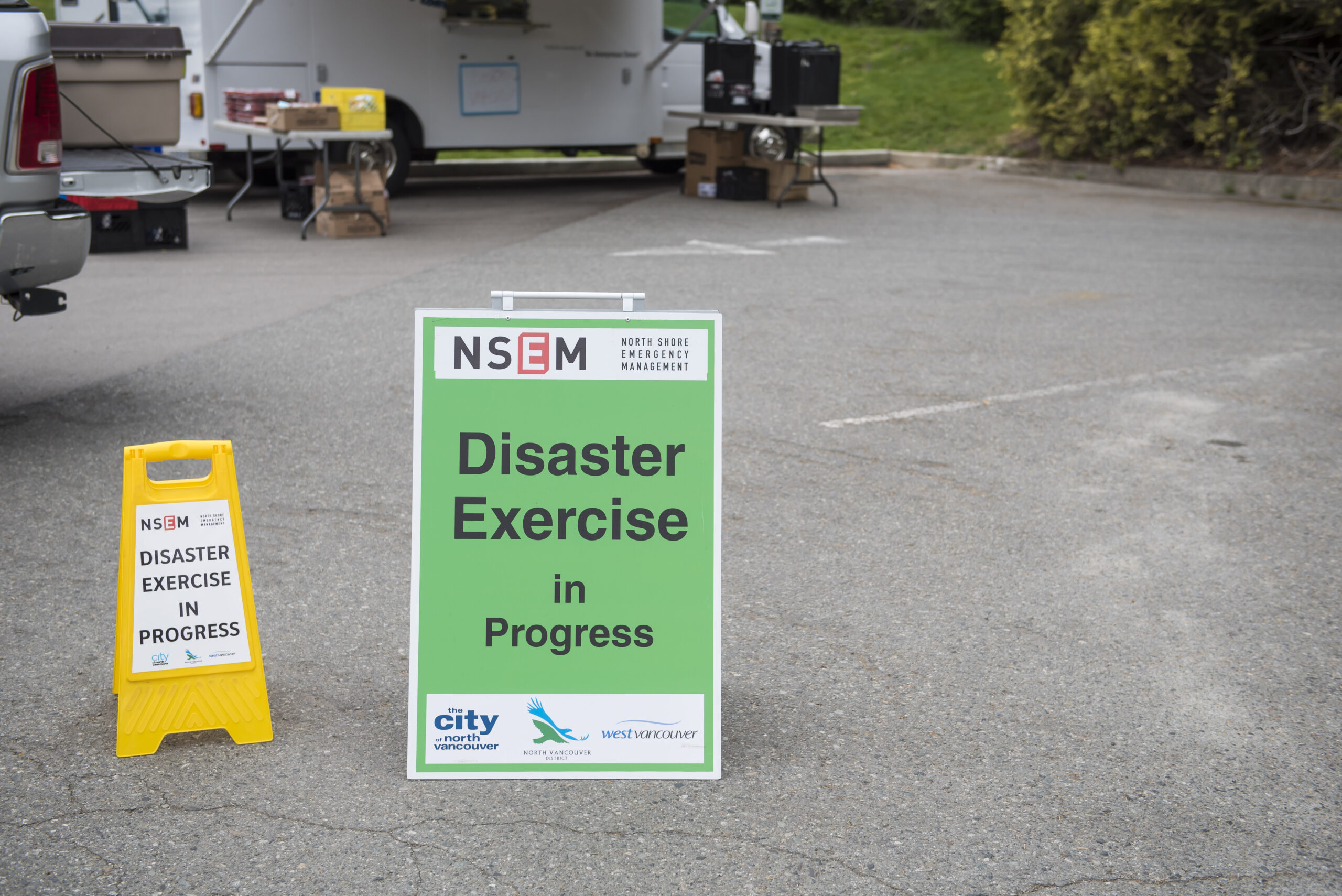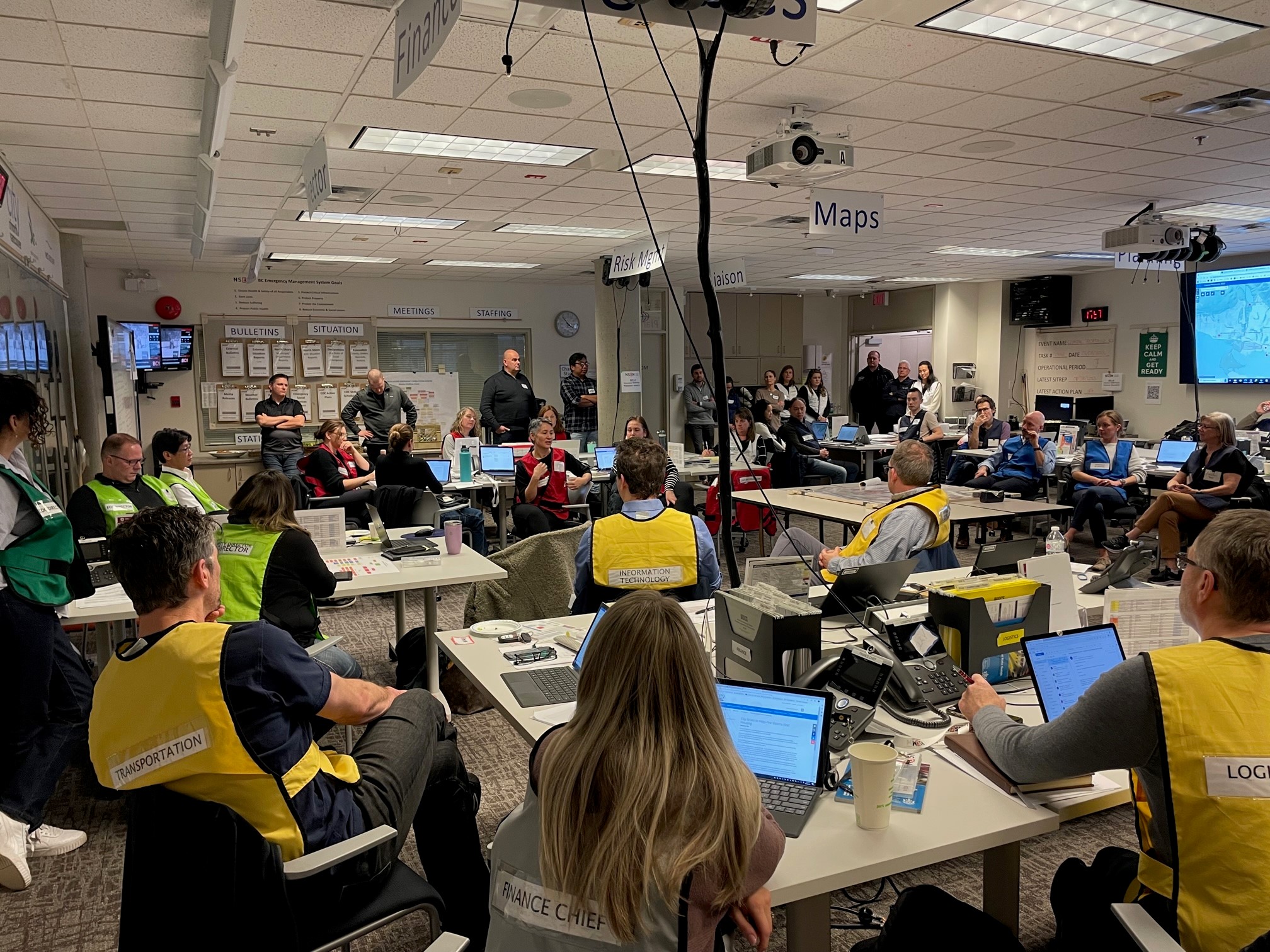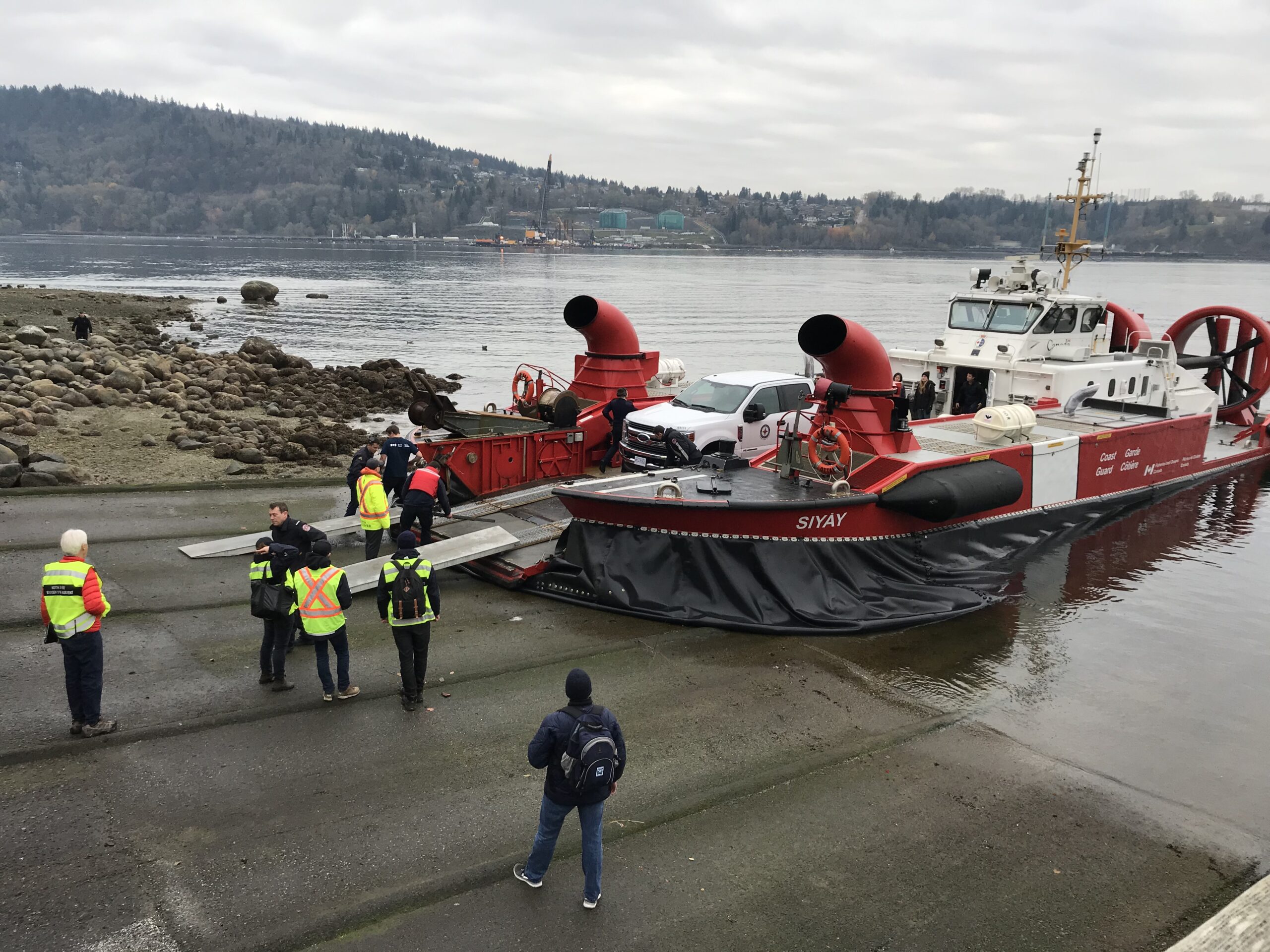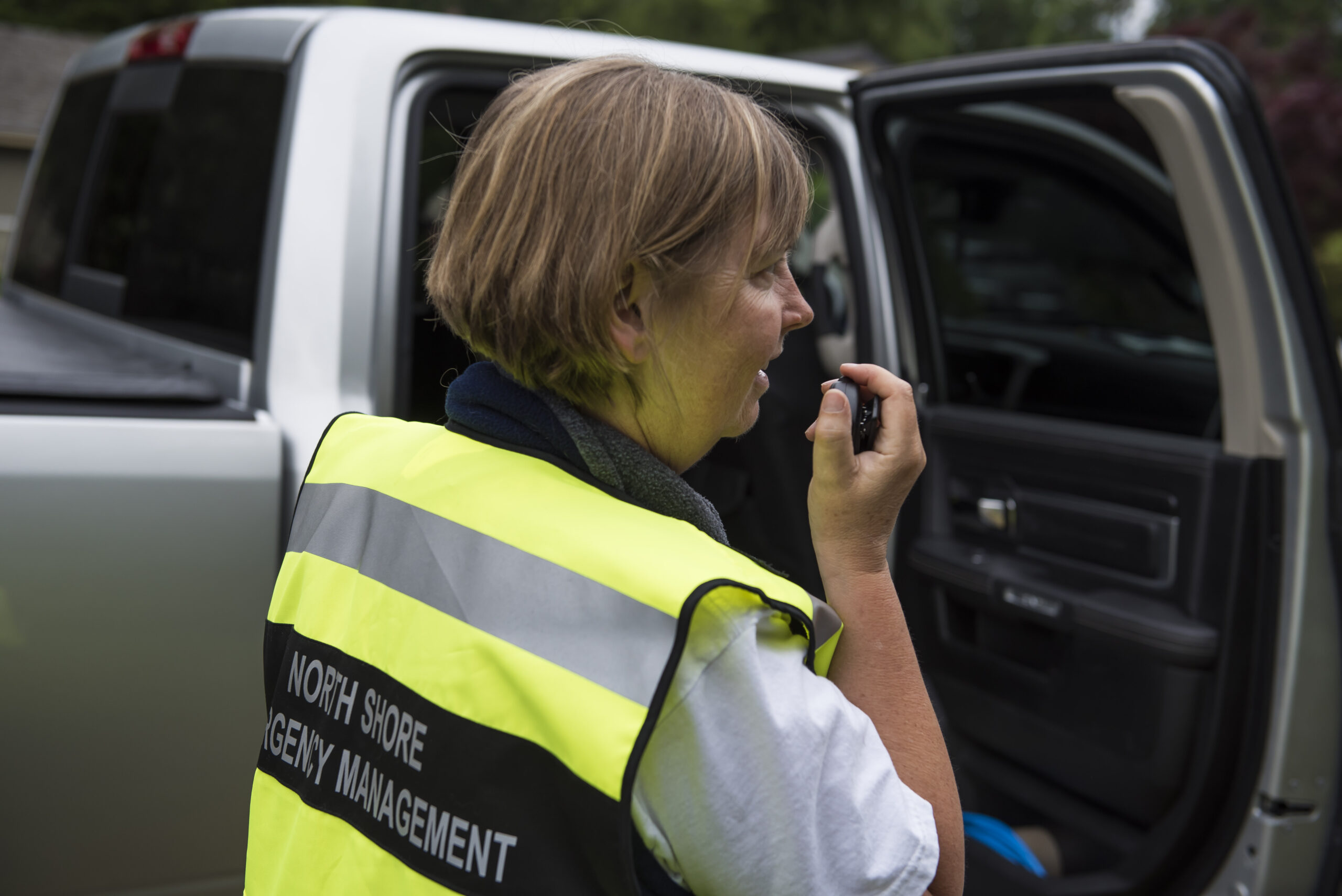North Shore Emergency Management (NSEM) is the emergency management department for the City of North Vancouver, District of North Vancouver, and District of West Vancouver. Established in 1978, this tri-municipal program is responsible for emergency planning and preparedness, response and recovery activities, partner engagement, volunteer management and other activities based on the Emergency and Disaster Management Act and reinforced by bylaw.
Serving the North Shore community through one office provides increased efficiencies and effectiveness for emergency management programs, an increased volunteer pool, and coordinated planning, response, and recovery strategies.
Our vision
A disaster-resilient North Shore
We support our vision of a disaster-resilient North Shore by:
- delivering emergency response training to staff and NSEM’s public safety lifeline volunteers.
- providing an operationally ready Emergency Operations Centre for use by individual or multiple North Shore Municipalities as required.
- facilitating and delivering municipal emergency exercises to increase staff skills and promote collaboration between municipal and external resources.
- updating and developing plans to identify roles and responsibilities during emergencies and disasters and testing those plans through exercises.
- providing a municipal link to the North Shore Schools Emergency Planning Programs.
- creating relationships and engaging internal and external stakeholders.
- delivering emergency preparedness awareness training to communities on the North Shore.
Our Mission
To serve and support the North Shore municipalities and citizens in preparing for, responding to, and recovering from emergencies and disasters.
Our core values
- Integrity — We act with courage, consistency, and respect to do what is honest, fair and trustworthy.
- Innovation — We activate and respond to challenges and changing needs with creativity, enthusiasm, and determination.
- Responsibility — We are accountable to our municipalities, volunteers, colleagues, and citizens for the results of our decisions and actions.
- Respect — We treat everyone with dignity and equality with thoughtful consideration.
Goals and Objectives
- Training for municipal staff, first responders, and volunteers to enhance their ability to support the emergency response activities on the North Shore.
- Exercises to test the effectiveness of this training.
- Development of relevant emergency plans to help prepare for, respond to, and recover from emergencies and disasters.
- An operationally ready Emergency Operations Centre for use by individual or multiple North Shore municipalities as required.
- An informed North Shore community, knowledgeable of their personal emergency management responsibilities.
- Successful engagement of stakeholders to enhance the North Shore’s emergency management capabilities.
Regional involvement
We participate in regional planning and preparedness activities including:
- Regional Emergency Planning Committee
- On-Line Preparedness Working Group
- Public Safety Education Advisory Group
- Founding member of EPICC (Emergency Preparedness for Industry and Commerce Council) which provides assistance to BC businesses to prepare for and recovery from disasters
2012 awards and achievements
- Queen’s Jubilee Awarded to North Shore Rescue members Karl Winter and Greg Miller
- More than 500 North Shore residents trained during delivery of 28 emergency preparedness sessions
Past awards and achievements
- Significant contribution by North Shore Emergency Management and the District of North Vancouver to win the 2011 United Nations Sasakawa Award
- Developed a Shelter-in-Place education program for Maplewood residents and businesses
- Management Volunteers have assisted North Shore Emergency Management in the initiation and support of municipal and regional emergency operations for 12 years
- Award of Excellence presented by the Emergency Preparedness Conference organizing committee
- A regional (North Shore) Emergency Operations Centre (EOC) with up to date and well-equipped technology and equipment
- A North Shore Schools Emergency Planning Coordinator and Program from 1999 to 2012, the only one of its kind in the Lower Mainland. The funding for this program was provided by the two North Shore School Boards (SD44 & SD45) and the North Shore Emergency Management Office
- An Emergency Social Services (ESS) program for 30 years – with a streamlined and formal recruitment and recognition programs
- An active search and rescue team for more than 40 years. North Shore Rescue (NSR) is considered a Canadian leader in search and rescue
- Active Emergency Radio Communications (ERC) volunteers providing emergency communications services for remote areas, or when vital communications links are down
- Public Emergency Preparedness Workshops that are presented by our highly-trained Emergency Education Instructors.
Emergency management
The goal of emergency management is to protect lives, property, and the environment — before, during, and after disaster strikes.
This is accomplished through preparedness activities, training, and mitigation programs, and ensuring a prompt and effective municipal response and recovery utilizing the expertise and resources of federal, provincial, local agencies, and relief organizations.
On the North Shore, North Shore Emergency Management works with the three North Shore municipalities and many community partners to respond in a comprehensive and coordinated way to any emergency event through the four phases of emergency management.
Mitigation
Mitigation refers to the measures that prevent an emergency, reduce the chance of an emergency happening, or reduce the damaging effects of unavoidable emergencies.
Mitigation helps ensure a safer community and helps to reduce the impact of future disasters through reduction or elimination of the impacts of hazards which exist within a community and are a threat to life and property. Typical mitigation measures include establishing building codes and zoning requirements and constructing barriers such as dykes.
NSEM has completed a Hazard, Risk, and Vulnerability Analysis (HRVA) to identify hazards or emergency situations which are a priority for North and West Vancouver.
Preparedness
Preparedness refers to the establishment of authority and responsibility for emergency actions and the resources that support them. Typical preparedness measures include developing mutual aid agreements and memorandums of understanding, maintaining facilities and equipment, training for both response personnel and volunteers, conducting disaster exercises to reinforce training and test capabilities, equipping of the Emergency Operations Centre (EOC), and an all-hazards education program.
Response
Response refers to the actions carried out immediately before, during, and immediately after an emergency or disaster which are aimed at saving lives, reducing economic losses, and alleviating suffering. This may include activating the municipal Emergency Operations Centre (EOC), warning, evacuating or sheltering the public, search and rescue, providing medical treatment, firefighting, maintaining the law, assessing damage, or requesting outside help if needed.
Recovery
Recovery refers to the actions taken to return a community to normal or near-normal conditions, including the restoration of basic services and the repair of physical, social, and economic damages. Typical recovery actions include debris cleanup, bringing power, telephone, and other key utilities back on line, rebuilding of roads, bridges, key facilities, and caring for those who have been displaced.
Training and exercises
Training and exercises help municipal staff, response agencies, and volunteers respond effectively in an emergency situation by allowing them to practice their emergency response skills and test emergency plans and procedures.
Activities include:
- preparedness orientation sessions for new municipal staff
- annual schedule of Emergency Operations Centre (EOC) staff and volunteer training held in the Municipal Emergency Operations Centre
- annual schedule of Emergency Social Services (ESS) volunteer training held at North Shore Emergency Management and other locations throughout the Lower Mainland
- annual municipal drills and exercises
- annual Emergency Social Services drills and exercises
Plans and bylaws
The emergency/disaster plans and bylaws for the North Shore municipalities have been developed using one template. Having worked in partnership in emergency management for many years, the North Shore municipalities have found that having similar plans helps to ensure effective and integrated emergency planning, response, and recovery.
Plans
The Municipal Emergency Plan guides the municipality’s actions to prepare for, respond to, and recovery from major emergencies. The plan identifies the key hazards which threaten our community, priority actions to be taken, roles, and responsibilities of staff and key response agencies who also participate in the municipality’s emergency response and recovery efforts. These plans are established through the Municipal Emergency Plan Bylaws. To support the Municipal Emergency Plan, hazard-specific and operational plans are also developed.
North Shore Emergency Management and the North Shore municipalities also participate in regional emergency planning activities. Recent examples of regional planning initiatives include the plans, exercises, and resources produced for Emergency Information Communicators, Disaster Response Routes, Telecommunications, Disaster Debris, Critical Infrastructure, and Hazardous Materials.
The City of North Vancouver, District of North Vancouver, and District of West Vancouver (the “North Shore municipalities”) each have a municipal Emergency Plan, established by bylaw.
- City of North Vancouver Municipal Emergency Plan
- District of West Vancouver Municipal Emergency Plan
- District of North Vancouver Municipal Emergency Plan
Bylaws
The North Shore municipalities each have a disaster bylaw, which provides the local legislative framework for a coordinated, “multi-jurisdictional” response for an event occurring in two or more of the North Shore’s municipalities and provides guidelines for working together in operating the Municipal Emergency Operations Centre.
- City of North Vancouver disaster bylaw
- District of West Vancouver disaster bylaw
- District of North Vancouver disaster bylaw
There is also an NSEM agreement bylaw which establishes NSEM as an inter-municipal agency of the City of North Vancouver, District of North Vancouver and District of West Vancouver.
North Shore Emergency Management’s 2022-2023 Annual Report shares some of NSEM’s key milestones of success. From the completion of critical municipal emergency response plans, to exercises that support enhanced levels of operational readiness, the intent of the report is to provide a glimpse into the success of the program.

